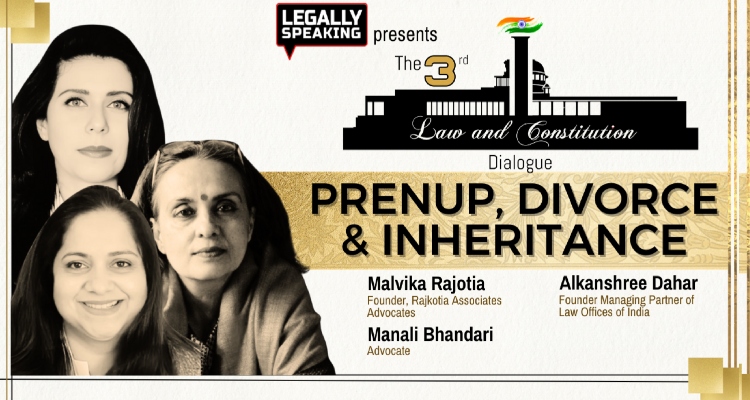
At the Legally Speaking dialogue on “Prenup, Divorce & Inheritance,” legal experts deliberated on the delicate balance between empowering women through protective laws and addressing concerns of their misuse. The panel, featuring Malvika Rajotia, Manali Bhandari, and Alkanshree Dahar, explored how society can uphold justice while maintaining focus on the original intent of these laws. The tragic suicide of Atul Subhash served as a case study for the discussion, reigniting debates around the misuse of women-centric legislation like Section 498A.
Key Takeaways from the Discussion
Women-enabling laws were introduced to address systemic injustices but often face disproportionate scrutiny for misuse.
Isolated cases of misuse should not overshadow their necessity or legitimacy.
Judicial reforms and fair implementation are crucial to ensure justice for all parties involved.
The narrative must shift from defending these laws to empowering women and strengthening protections.
The Case of Atul Subhash
The dialogue opened with the tragic case of Atul Subhash, who allegedly died by suicide after accusing his wife and in-laws of harassment. This incident has fueled public discourse on the potential misuse of Section 498A, a law designed to protect women from cruelty in marriage.
Alkanshree Dahar, Founder and Managing Partner at Law Offices of India, addressed the complexity of the issue:
“The fact Atul committed suicide is unfortunate, but you cannot say that his wife and in-laws should be put behind bars. It depends upon the facts of the case. But we cannot say that laws are being misused.”
Dahar acknowledged the Supreme Court’s recognition of misuse in some instances but emphasized the broader vulnerability of Indian women:
“We have all the laws, but we need a robust judiciary and better implementation so people—be it the husband or wife—get justice.”
Misuse Should Not Overshadow Necessity
Advocate Manali Bhandari urged the audience to keep the historical context of women-enabling laws in mind. These laws were enacted to combat grave injustices, such as dowry deaths and domestic violence:
“There may be some amount of misuse, but we should not take away from the fact that a large number of women are still suffering.”
She criticized the tendency of media trials to sensationalize such cases, often neglecting a balanced perspective:
“A fair chance should be given to the wife’s family to respond and see what actually happened.”
A Broader Narrative of Misuse
Malvika Rajotia, Founder of Rajkotia Associates Advocates, questioned why women-centric laws face disproportionate scrutiny compared to other areas of legal misuse:
“When politicians are framed for murder or businessmen are charged by the ED, nobody is talking about the misuse of those laws.”
She argued that framing discussions about women’s protections within the context of misuse undermines their legitimacy:
“To identify women’s cause and neutralize that battle with the argument of misuse must be removed from the narrative. Let’s not talk about misuse of laws only among women’s issues. Why do we have to get defensive about women-enabling laws?”
Judicial Reforms: Strengthening Justice
While opinions varied on specific aspects, the panelists unanimously called for judicial reforms to ensure equitable implementation of women-centric laws. Alkanshree Dahar stressed the importance of a robust judiciary:
“We need a judiciary that ensures justice for all, whether it’s the husband or the wife. The laws are there, but their implementation must improve.”
The panel agreed that better mechanisms and streamlined judicial processes are essential to prevent both misuse and underutilization of protective laws.
Reframing the Narrative
The discussion underscored the need to move away from a defensive stance on women-enabling laws. These laws, designed to address systemic injustices, should not be overshadowed by rare instances of misuse. Instead, society must focus on strengthening judicial mechanisms, ensuring fairness, and addressing inequities without undermining the protections for women.
As Malvika Rajotia aptly concluded:
“Why do we have to get defensive about women-enabling laws? Let’s ensure they serve their purpose instead of debating their existence.”
This dialogue highlighted the importance of empowering women while fostering a legal ecosystem that upholds justice for all.
Read More: Justice Surya Kant On The 2018 Amendment To The Specific Relief Act | Legally Speaking




